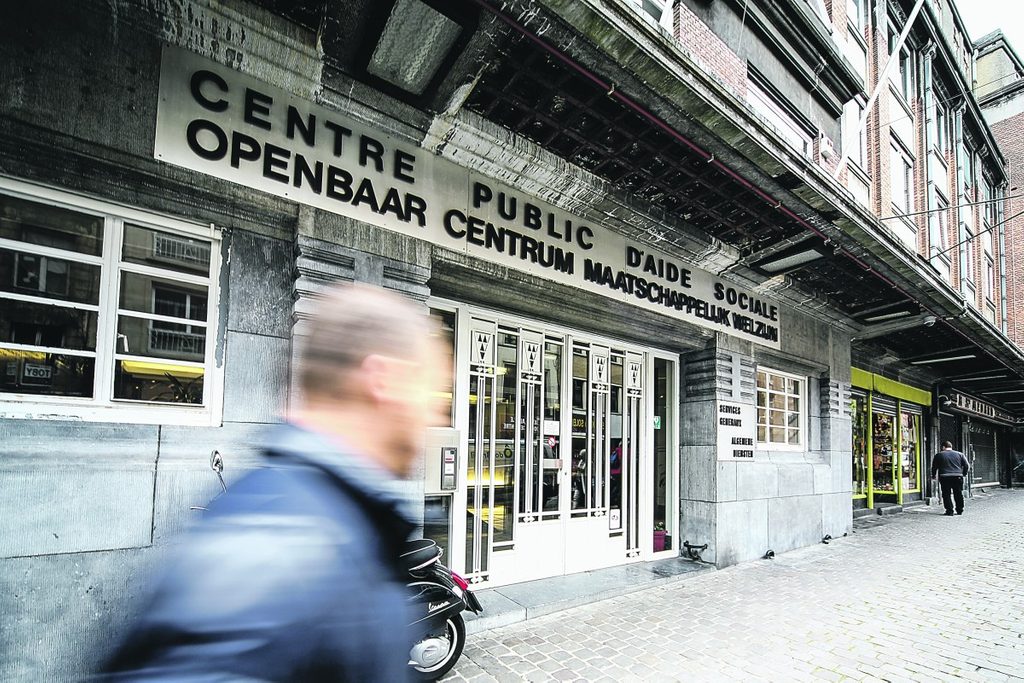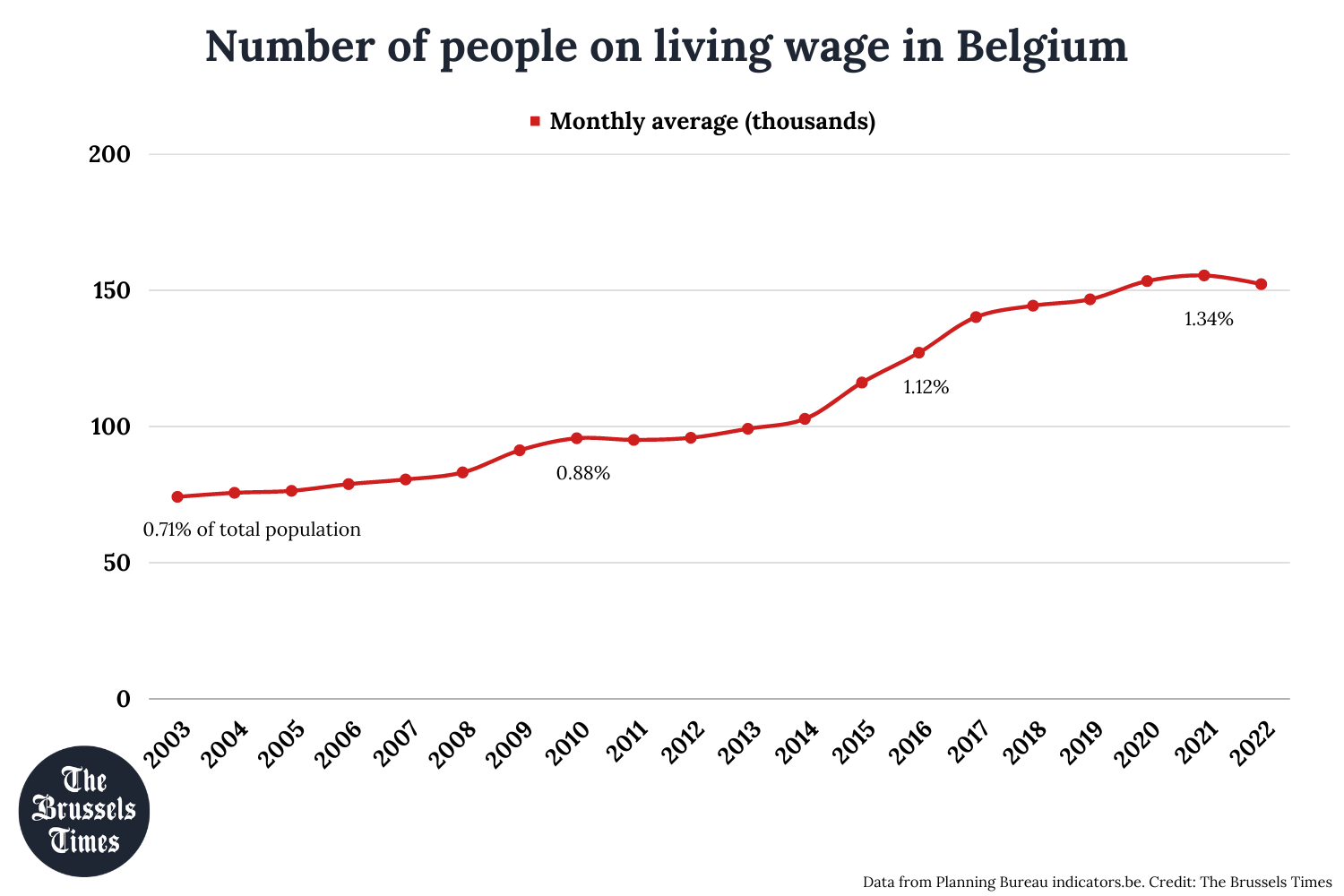An unmistakable rise in the number of people on a living wage in Belgium has been recorded by the Federal Planning Bureau, which stressed an urgent decrease is needed if Belgium is to attain the UN's Sustainable Development Goals (SDGs).
Last year, an average of 152,275 people were given a living wage by the Public Centres for Social Welfare (OCMW). This is a financial allowance given to people who have no income and are not able to work, or whose income is lower than the amount considered necessary to "lead a dignified life." In this case, the amount given will align their income to the living wage.
The latest figures from June showed the number of beneficiaries rose to 156,897, up from just 74,100 people in 2003.
"For the period 2003-2022, the number of living wage earners more than doubled. This evolution is the logical consequence of the observation that year on year, the inflow to the living wage exceeds the outflow," the Planning Bureau noted. The upward trend is undeniable: in 2003, 0.7% of the country's population lived on a living wage, compared to around 1.3% today.
The average monthly number of living wage earners increased after the 2008 financial crisis, but then stabilised until 2012. Two year later, it rose again to 102,746.
"A combination of structural (including the labour market position of at-risk groups) and cyclical factors (the 2008 financial-economic crisis) is partly behind the overall upward trend," the Planning Bureau noted. The number rapidly rose in 2017 due to "the growing insecurity of certain at-risk groups" such as low-skilled and part-time workers. "More recently, changes in the legislation on unemployment benefits as well as the rise in the number of recognised refugees, among others, contribute to this increase."
In 2020, vulnerable people "saw their income dwindle as a result of the Covid-19 health crisis and thus had to rely on this social assistance system," with the amount of living wage earners rose sharply. In 2021, this figure rose to 155,376 – the monthly number surpassed 160,000 during the height of the pandemic, in February and March 2021 – before falling slightly to 152,275 in 2022.
Hindering social integration through work
The number of people on the living wage was highest in Wallonia (70,745, making up 46% of all recipients), followed by 44,093 (29%) in Brussels and 37,437 (25%) in Flanders.
However, the percentage of living wage earners of the total population per region put the Brussels-Capital Region in the lead (3.61% in 2021 compared to 1.99% in Wallonia and 0.57% in Flanders).
Recognised refugees or subsidiary-protected people (those with a limited right of residence) account for 15.1% of the total number, but they must have lived in Belgium for at least five years before earning a full living.
The Planning Bureau stressed that the dynamics in the living wage population have declined since 2015. Since then, the "group consists of a 'trapped group' of beneficiaries, facing a multitude of problems that hinder their social integration through a paid job." This group is comparable to the long-term sick who are unemployed, or people who have been out of work for too long, creating a barrier for them to be employed again.
Due to the cost of living crisis, the amount given to those on a living wage increased on 1 November 2022, 1 December 2022 and 1 January. The latest increases were made at the start of last month as a result of the statutory welfare adjustment mechanism.
A full living wage today amounts to €1,238.41 for a single person (€14,860.96 per year), €825.61 for a cohabitant (€9,907.30 per year) and €1,673.65 (€20,083.80 per year) for someone with children or other dependent family members. Depending on the type of living wage, the Federal Government finances 60 to 100% of the living wage granted by social services.


